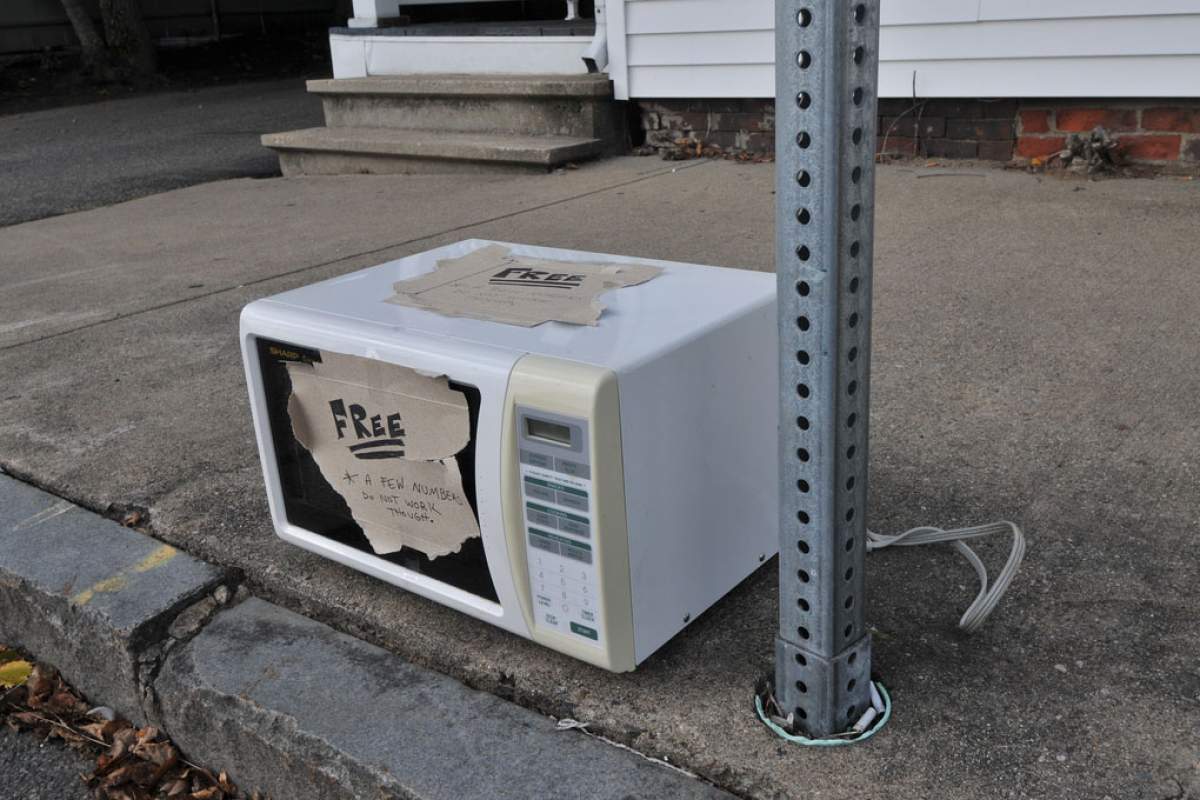
After a year or two of use, the microwave you bought for that dorm room or first apartment probably doesn‘t look like it did when you first pulled it out of the box. You "zapped" more gooey, smelly on-the-go meals in that microwave than you can count. And when you might move, odds are high that you'll just leave it at the dumpster and pick up a new one.
But problems arise when whole classes of consumers choose to dispose of their electronics in that way. Researchers recently completed the first ever environmental impact study of microwave ovens, which account for the largest percentage of sales of any type of oven in the EU.
European Union
The study found that the amount of annual carbon emissions produced by the manufacture, use, and disposal of 131 million microwaves in the EU alone equals the yearly emissions of about seven million cars. The electricity consumption is the biggest detriment to the environment, but consumers can help dial this back by using their appliances more efficiently, like adjusting cook time to food type.
Manufacturing and disposing of these microwaves is also a primary contributor to net carbon emissions. Yet, due to relative low costs and rapid updates in technology, more people are discarding electrical and electronic equipment than ever before.
Unnecessary Waste
Though, previous research has shown that one third of the microwaves in waste facilities still worked. Testing found that another third could have been easily repaired.
The worldwide volume of electrical and electronic waste grows by 4% a year, but hundreds of thousands of tons of waste can be reduced if we reuse the microwaves we own rather than replacing them before their clock‘s up.
If you're looking in general to find a way to dispose of your old microwave and electronics, research whether or not your city has specific ways to recycle those that are truly ready to move on. And also, you should make sure based on where you live if throwing away your electronics is even legal. Increasingly in the United States, many states have laws about which electronics can be thrown away into a dumpster.
If you want to keep reading about how pollution is affecting lives around the globe, you could click here to read about how it was responsible for 15% of deaths in 2015. Or if you want to think more about ways you can contribute to making the Earth a healthier and cleaner place, you could click here to read our most popular all-time post.
Thank you to Alejandro Gallego-Schmid of the University of Manchester for reviewing this episode's script.
Sources And Further Reading:
- Gallego-Schmid, Alejandro. Mendoza, Joan Manuel F. Azapagic, Adisa. "Environmental assessment of microwaves and the effect of European energy efficiency and waste management legislation." Science of The Total Environment: Volume 618, 15 March 2018, Pages 487-499. https://doi.org/10.1016/j.scitotenv.2017.11.064
- University of Manchester. "Microwaves could be as bad for the environment as cars, suggests new research." Phys.org. January 17, 2018. Accessed April 4, 2018.
- University of Manchester. "Saving the planet, one microwave at a time." Phys.org. May 15, 2012. Accessed April 4, 2018.









